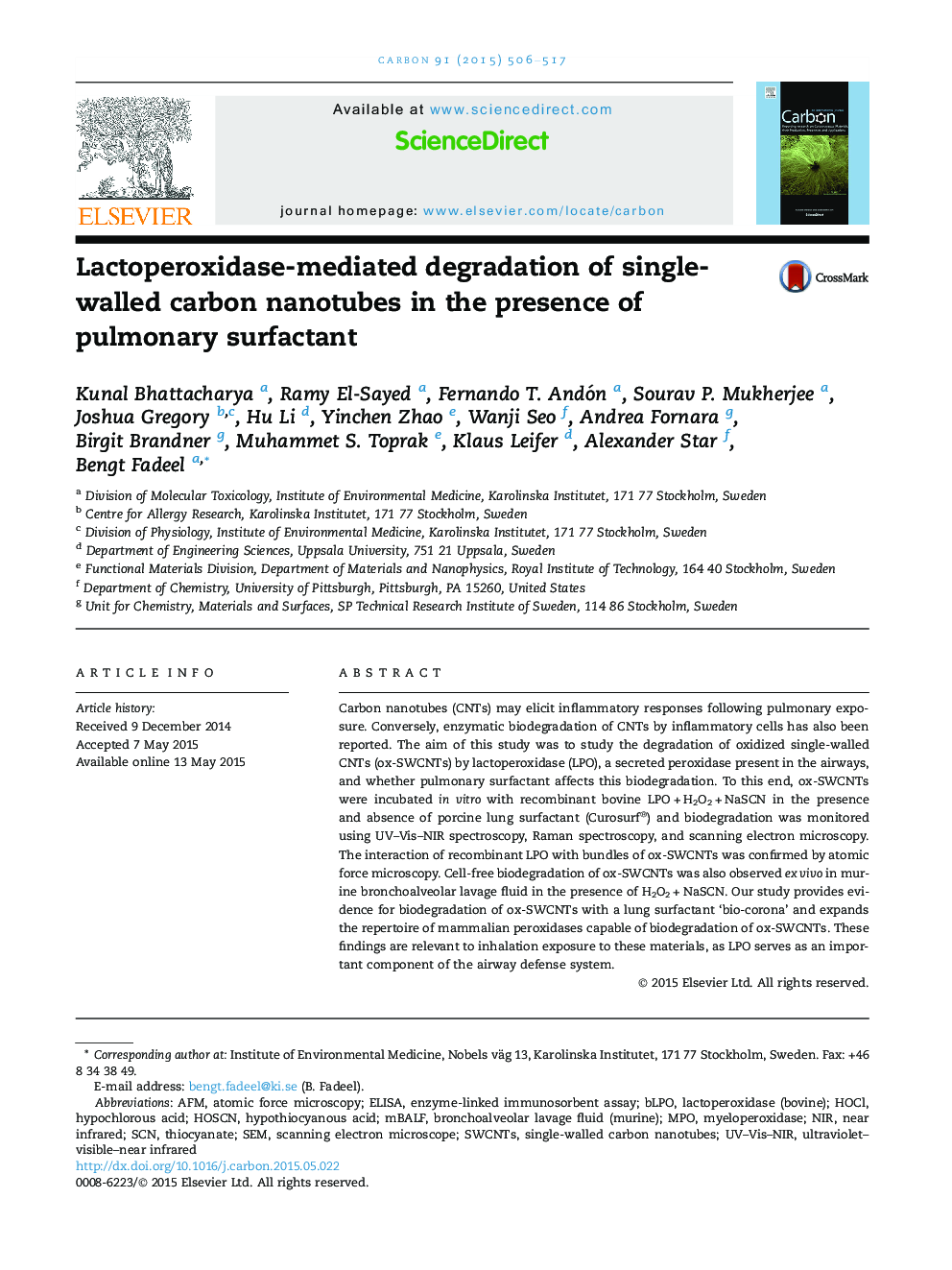| Article ID | Journal | Published Year | Pages | File Type |
|---|---|---|---|---|
| 7851804 | Carbon | 2015 | 12 Pages |
Abstract
Carbon nanotubes (CNTs) may elicit inflammatory responses following pulmonary exposure. Conversely, enzymatic biodegradation of CNTs by inflammatory cells has also been reported. The aim of this study was to study the degradation of oxidized single-walled CNTs (ox-SWCNTs) by lactoperoxidase (LPO), a secreted peroxidase present in the airways, and whether pulmonary surfactant affects this biodegradation. To this end, ox-SWCNTs were incubated in vitro with recombinant bovine LPOÂ +Â H2O2Â +Â NaSCN in the presence and absence of porcine lung surfactant (Curosurf®) and biodegradation was monitored using UV-Vis-NIR spectroscopy, Raman spectroscopy, and scanning electron microscopy. The interaction of recombinant LPO with bundles of ox-SWCNTs was confirmed by atomic force microscopy. Cell-free biodegradation of ox-SWCNTs was also observed ex vivo in murine bronchoalveolar lavage fluid in the presence of H2O2Â +Â NaSCN. Our study provides evidence for biodegradation of ox-SWCNTs with a lung surfactant 'bio-corona' and expands the repertoire of mammalian peroxidases capable of biodegradation of ox-SWCNTs. These findings are relevant to inhalation exposure to these materials, as LPO serves as an important component of the airway defense system.
Keywords
Related Topics
Physical Sciences and Engineering
Energy
Energy (General)
Authors
Kunal Bhattacharya, Ramy El-Sayed, Fernando T. Andón, Sourav P. Mukherjee, Joshua Gregory, Hu Li, Yinchen Zhao, Wanji Seo, Andrea Fornara, Birgit Brandner, Muhammet S. Toprak, Klaus Leifer, Alexander Star, Bengt Fadeel,
